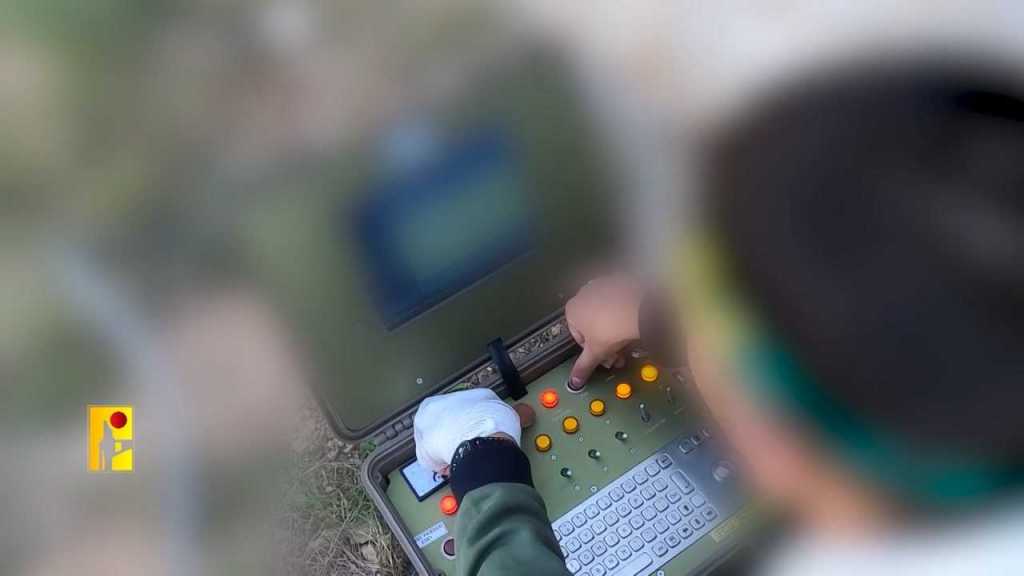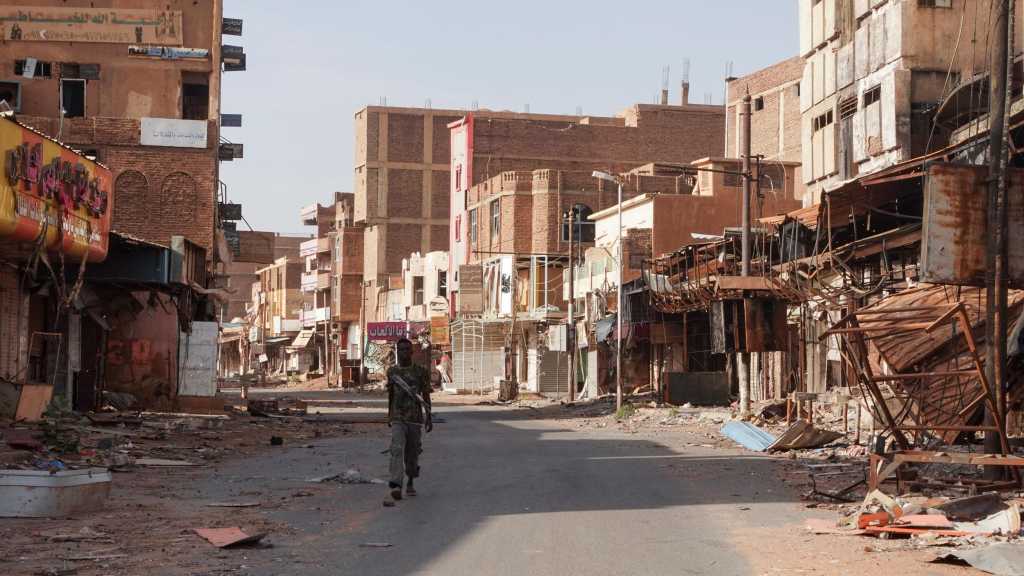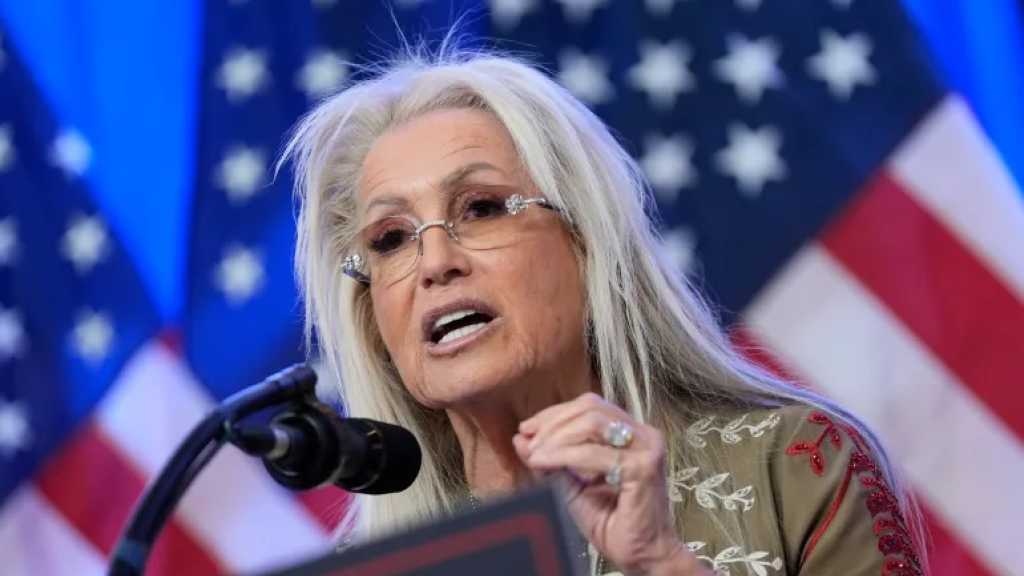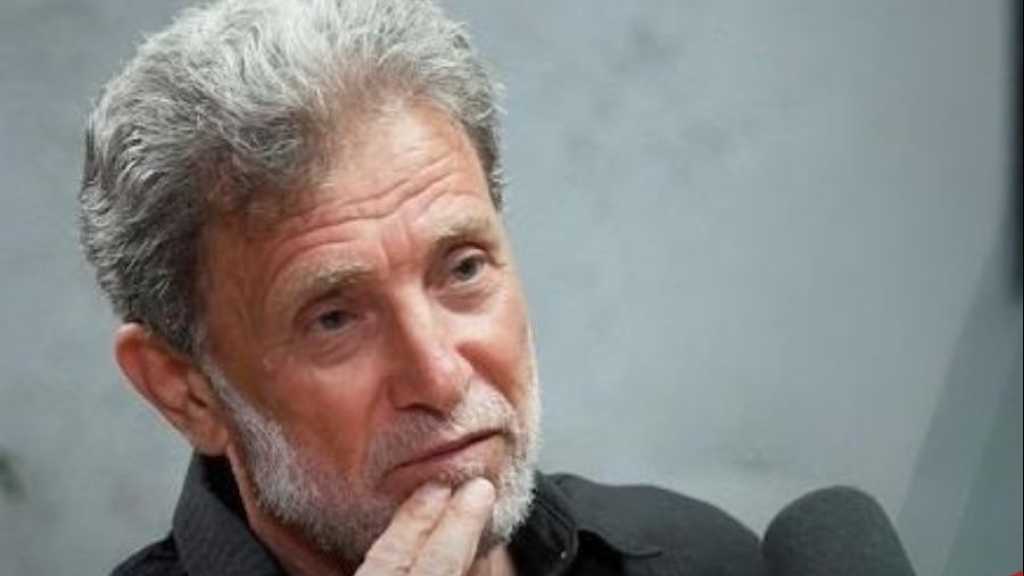A Wounded Hezbollah Fighter: The Battle Was Our Medicine

By Latifa Hosseiny
With prevailing calm, the wounded mujahid Hajj Baqir reassures those concerned that the resistance is well. The mujahid, who did not leave the field for 26 years since joining Hezbollah’s ranks until he was wounded on the day of the pager explosion, says that duty was the foundation and the motive for clinging to the fight in the fiercest battles of confrontation with the enemy.
It took 15 days for Hajj Baqir to return to the front after the ominous September 17, 2024 incident.
He was positioned in Bint Jbeil, and from there, with amputated fingers and still-fresh pain, he fought and accompanied his comrades who fell as martyrs to the battlefield. The mujahid recalls some of this experience in the resistance and speaks about the days of fighting, clashes, and breaking the might of the enemy on southern soil.
The battle in all its details remains present in Hajj Baqir’s memory. As he recalls some of its scenes, he explains that the fighters worked under fire and under the activity of reconnaissance aircraft and did not pay heed to danger or threats.
The concept of fear among the resistors is non-existent, the wounded mujahid asserts, and what matters most to them is the honorable environment which, without it, the resistance would not have remained.
Al-Ahed news website exclusively publishes a special interview with the wounded mujahid in the Islamic resistance, Hajj Baqir. Below is the text of the interview:
Q. Can you tell us about your physical recovery after the injury on September 17, 2024—the pager attack?
When the pager explosion happened, I was alone at the post; the device exploded in my hand. I immediately went alone to the hospital; I stopped a car and headed there. I stayed in the hospital for three days, then left and stayed in Beirut for about 15 days. Once the surgical sutures were removed, I returned to the front—about 15 days after the start of the war.
Q. When you returned to the front, your injury was still fresh, and it takes time to get used to the idea that your fingers and part of your hand are amputated. How were you able to overcome that and resume jihadi work?
Religious and moral motives and one’s personal commitment over all these years were the foundation. In other words, if you are able to do something, even small, even without hands or feet, don’t stop because of that. It is true that my injury led to amputation and caused pain, which is natural, but the battle demanded sacrifices and, more importantly, this was my duty (taklif), and I had to do more than what was required of me. The wound was difficult, and many advised me to take it easy and not rejoin quickly until I finished treatment, but what was happening made me feel it was necessary for me to be there and to do what was required even if it was a small task—circumstances and balances change. Thank God I drove the vehicle with one hand and returned to the battlefield, and by God’s grace I was back. Truly, I saw all forms of sacrifice, devotion, and steadfastness during the war.
Q. In which axis were you?
The Bint Jbeil and Al-Hujair axis.
Q. Until when did you remain participating in the fighting?
Until the war ended.
Q. Can you recall some scenes from that experience and the feats recorded on the ground, and some of the notable and powerful strikes?
Naturally the situation was difficult. Whoever joined was like a would-be martyr—once you go in you don’t come back, unless God has willed otherwise. We needed unconventional tactics, not ordinary military groups, but methods that could surprise the enemy and inflict hits in places it did not expect. On that basis we began forming groups. Thank God the brothers worked and held firm.
I came across a young man wounded in the pager attack; a shrapnel was still in his eye. I asked him to Beirut and that we would call him back when needed. He refused. The brothers requested supplies to Bint Jbeil so they could send in a jihadi group with specific weapons to carry out some advances. When this young man heard that, he gathered his belongings and stood at the front before anyone else saying, “No one will go out except me.” Although not long after joining the jihadi body, he indeed went to the front and had a large share of the strikes directed at enemy forces in Maroun al-Ras, where “Israeli” soldiers were killed and wounded, until he was martyred.
After he was martyred, we found a note among his personal belongings that read: “My God, free me from this world; how I long to meet Imam Hussein (peace be upon him) and the Master of the Time (may God hasten his reappearance)!”
This Maroun al-Ras operation was connected to drones. When the “Israelis” advanced toward the town, the Bint Jbeil group consisted of only two mujahideen fighters, and these two were able to shoot down 12 drones and inflict real casualties among the enemy—dead and wounded—and they managed to stop the occupier’s attempts to advance again; the enemy was driven back east of Maroun. The two mujahideen were later martyred, but their accomplishment alone in that spot established a deterrent that prevented the enemy from heading to Bint Jbeil.
Another operation was led by a brother who went alone to the Maroun-Bint Jbeil-Ainata triangle, then joined with another brother there. This place has military symbolism: in 2006, during that year’s war, a force from Golani Brigade 51 at the eastern outskirts of Bint Jbeil fell into an ambush by the resistance that killed 8 soldiers and wounded more than 25; that battle was then considered one of the principal battles in the history of the Golani Brigade.
In any case, that same brigade thought it could avenge that ambush after all this time by mounting an operation in order to bolster its troops’ morale; it assumed Hezbollah was exhausted and had no fighters in the triangle. It sneaked into the area, reached the edge of a house where it turned out the young men were positioned, and a fierce clash ensued until they blew up the house with the brigade inside. The “Israelis” withdrew immediately and did not approach the area again.
(According to the resistance statement about the operation on 13/11/2024, the mujahideen targeted the house with a number of RBG anti-personnel and anti-armor projectiles which destroyed parts of the house where the force had taken shelter. The clashes lasted more than three hours, and evacuation of the wounded was carried out under heavy smoke and fire cover.
The enemy acknowledged the death of an officer and five soldiers from Brigade 51 of the Golani Brigade and four wounded. No ground activity by the “Israeli” army was recorded in the area after the event ended.)
Among other scenes I witnessed was the scene of a wounded man with a very sensitive medical condition fighting and answering the call of duty while a device was fixed to his thigh. All this while the world around him was in chaos. Another mujahid injured his hand but still remained in the battlefield. We saw models that had nothing to do with our organizational body in Hezbollah, yet they were Hezbollah in thought and sacrifice. We also saw ordinary young men who stayed in their villages and fought until they were martyred, and there were those who moved on the road under fire.
Q. Based on your experience in this fierce battle, how did you as wounded pager mujahideen adapt to the harsh conditions imposed on you, especially in light of the enemy’s technological security breach, i.e., the “Israeli” was able to pinpoint your locations?
From the first day, it became clear to us what was happening, especially regarding the targeting that took place. As for adapting to the injury, thank God part of the blessings God granted us is faith, and the historical models embodied by our Imams (peace be upon them) are clear to us.
The selflessness of Abu al-Fadl al-Abbas (peace be upon him) as well: he lost his first hand, then his second, then his eyes, yet his jihad continued. For us, Abu al-Fadl (peace be upon him) is an example of sacrifice and devotion. Personally, I did not see any of the young men with injuries say, “I do not want to join” or “I don’t want to go to the battlefield.” On the contrary, I saw young men crying because they wanted to join the front. Whoever has willpower finds nothing difficult. In the end, everything is in God’s hands.
In truth, we worked under reconnaissance aircraft and under fire. A group would enter, and all its members would be martyred, then a second group would enter immediately; and that is what happened in Bint Jbeil: the first (composed of 10 mujahideen) entered and all were martyred.
Immediately the second entered after learning of their martyrdom. Two days later they were also all martyred. There were those who waited and, knowing that two from the group had been martyred, still went and joined the ranks of fighters and were martyred, until the third group entered, and only four brothers remained from it.
Q. Does that mean logistical and human support remained secured throughout this period of the war?
Yes, it continued. Nothing stopped. This is related to will, faith, and sacrifice. What mattered to us at those moments, besides steadfastness and fighting, was our environment. If these sacrifices had not occurred, the resistance environment would have been elsewhere.
Q. Did you receive news about what was happening?
Yes, of course. News, orders, logistical lines, rocket strikes and their numbers and how they were employed with weapons, drones and anti-armor systems. Things were “all right”. And had the war lasted longer, the productivity would have been higher as well.
Q. What about communication with the military leadership and directives?
Communication did not stop, nor did our needs for weapons, ammunition, and personnel.
Q. Today there are big challenges before you and the situation is different from the previous phase. How do you adapt to them in light of the current security difficulties?
At the start of the war things were difficult, but we quickly adapted to the new circumstances. It took two or three days.



